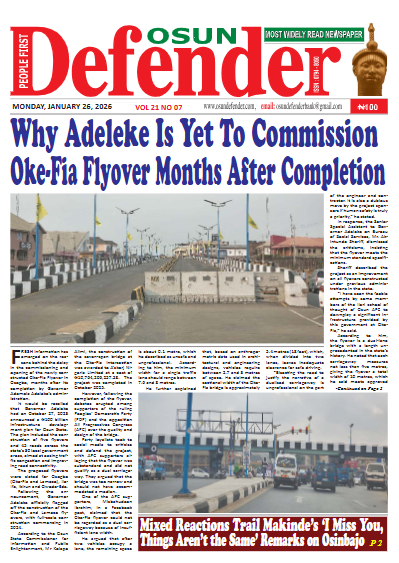The Federal Government has inaugurated a 10-man steering committee for the implementation of the Programme for Integrated Development and Adaptation to Climate Change in the Niger Basin (PIDACC/NB) project.
This was revealed by the Minister of Water Resources, Mr Suleiman Adamu, who inaugurated the committee in Abuja, said that it would be responsible for actualising the Nigerian component of the PIDACC project.
Adamu said that the committee would also provide guidance in ensuring the achievement of the project development objectives.
Read Also Women Group Asks Nigerians To Commend Military On Fighting Terrorists
He added that the committee would give approval of annual work plan and budget, and carry out appraisal of regular progress reports and financial statements for informed decision.
“The PIDACC project is to strengthen the resilience of the Niger River’s ecosystems and population through sustainable natural resource management.
“It will also focus on improving the socio-economic status of women and young people, and their access to resources, a critical factor for eliminating poverty and infant malnutrition,” the minister said.
He said that the ministry had setup the National Programme Coordination Unit, with the appointment and recruitment of key staff to implement the programme after receiving the approval of the Federal Executive Council (FEC).
This, he noted, were part of the Financing Agreements with the African Development Bank, European Union, Green Climate Fund, and the Global Environmental Facility.
Mrs Didi Walson-Jack, the ministry’s Permanent Secretary, said due to some challenges, the project implementation had been slow, which had hitherto been effective and launched in 2019 and 2020 respectively.
According to her, the project when completed, will stabilise the macro-economy, enhance social inclusion, drive industrialisation and improve health, education and productivity of Nigerians.
Walson-Jack said the development of infrastructure to combat the effect of climate change in the four river basins was critical, hence the need for technical and financial assistance to implement the project.
“We must therefore encourage our Government, the Niger River Basin Authority, and co-financial partners by ensuring that adequate funding is made available for project implementation’’.
Also speaking at the inauguration, Mr Baba Musa, National Coordinator of the PIDACC project, said the desilting programme would be implemented in four river basins development agencies.
Musa listed the agencies as including the Anambra-Imo, Upper Niger, Upper Benue and Sokoto-Rima River Basin Development Agencies.
“No fewer than four million smallholder farmers in the nine countries of the Niger Basin will benefit directly, with 51 per cent of them being women.
“The project will build the capacity of smallholder farmers, women and young people through training and the provision of farming, processing and farm produce conversion equipment.
“PIDACC will also improve access to decision-making positions for women, who will constitute at least 30 per cent of members of the various committees that will be set up’’.’
Baba noted that the six-year programme would enhance social inclusion and poverty reduction towards achieving the Federal Government’s agriculture and food security mandate.
Members of the steering committee include the managing directors of the four river basins; the ministry’s permanent secretary; the director, water resources planning and technical services; and representatives from the ministries of Finance, Environment and Agriculture.










